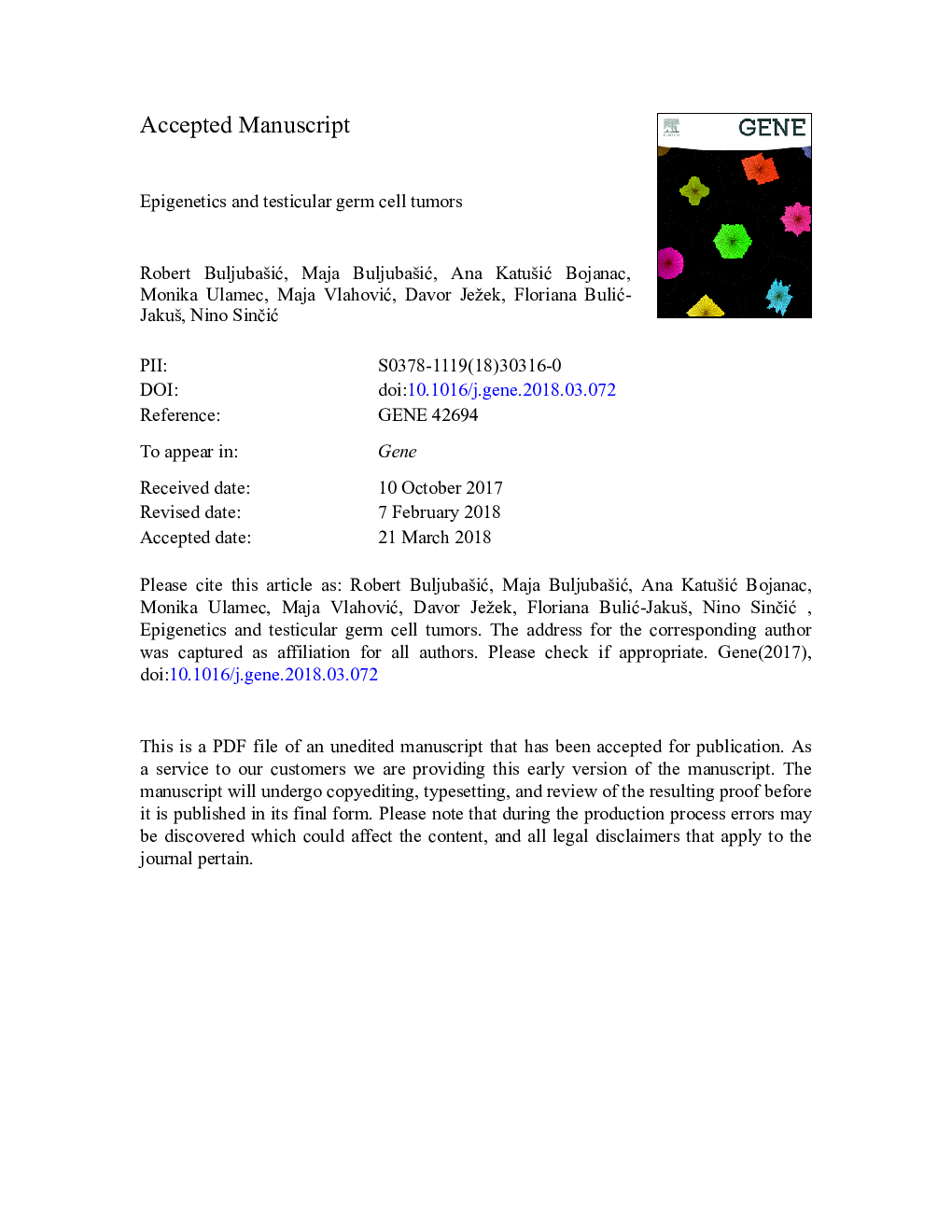| Article ID | Journal | Published Year | Pages | File Type |
|---|---|---|---|---|
| 8645079 | Gene | 2018 | 34 Pages |
Abstract
Malignant testicular germ cell tumors (TGCTs) are the most frequent testicular cancers in Caucasian males, developing at the most productive age of man. We are briefly reviewing TGCT-tumorigenesis with an emphasis on epigenetics. Epigenetic mechanisms such as DNA methylation and histone modifications together with RNA interference that all change gene expression are driving early spermatogenesis. Deregulation of normal development might lead to a testicular germ cell neoplasia in situ (GCNIS), from which TGCTs originate. The breakthrough epigenetic research, both in normal development and TGCT tumorigenesis, has been going on to find better biomarkers and therapy for this type of tumors.
Keywords
piRNAsDnmt5hmCECCSESCsCpGTETCHCCRISPR-Cas9CISSNPsMBDSYSTmiRNAsGCTPGCsEpimutationHDACsPLAPYolk-sac tumor5mCDNA methyltransferasepiwi-interacting RNAsalpha-fetoproteinplacental alkaline phosphataseHCGBiomarkerAFPGerm cell tumorTesticular germ cell tumorsmutationTherapymicroRNAsTesticular cancerprimordial germ cellsEmbryonic stem cellsEmbryonal carcinoma cellslactate dehydrogenaseLDHhistone deacetylasesHistone acetyltransferaseSingle nucleotide polymorphismsCarcinoma in situEmbryonal carcinomaChoriocarcinomaHAThuman choriogonadotropin
Related Topics
Life Sciences
Biochemistry, Genetics and Molecular Biology
Genetics
Authors
Robert BuljubaÅ¡iÄ, Maja BuljubaÅ¡iÄ, Ana KatuÅ¡iÄ Bojanac, Monika Ulamec, Maja VlahoviÄ, Davor Ježek, Floriana BuliÄ-JakuÅ¡, Nino SinÄiÄ,
